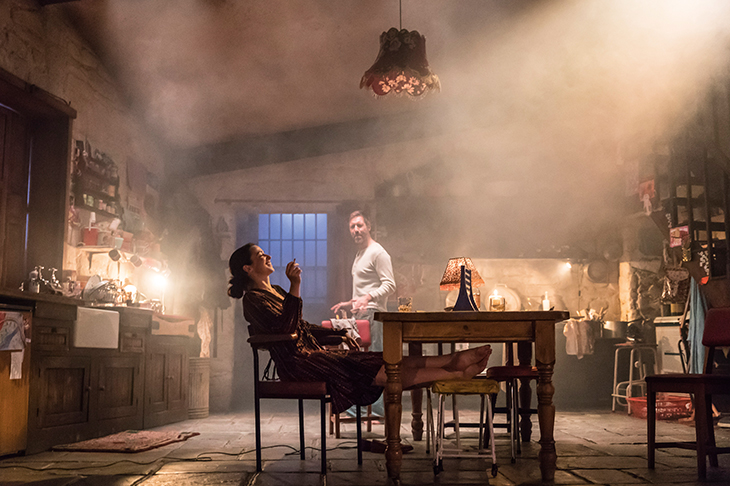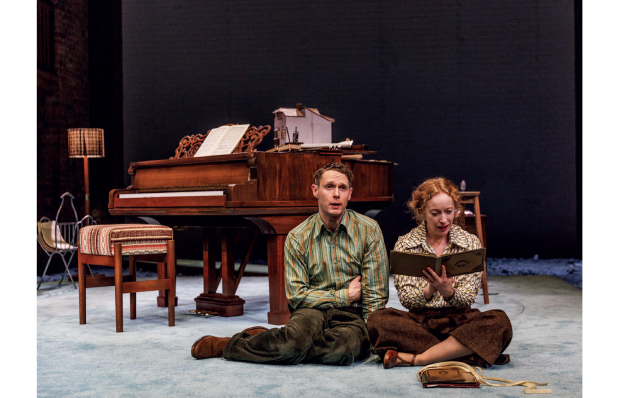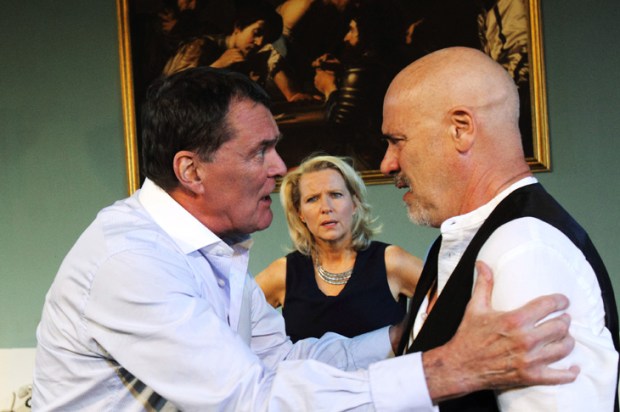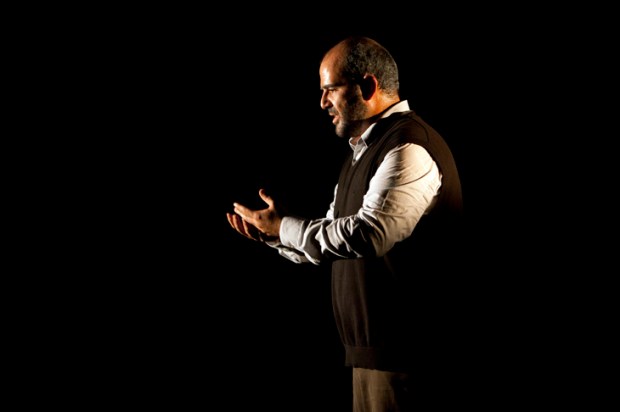Jez Butterworth’s new play The Ferryman is set in Armagh in 1981. Quinn, a former terrorist, has swapped the armed struggle for a farming career and now lives with his sick wife, their countless kids, his sister-in-law and her only son. But the IRA, who murdered his brother as punishment for his disloyalty, are due to pay a visit with unknown intentions. More violence, perhaps? Protection money? Or both. Well, neither, it turns out. They merely want Quinn to refrain from blaming his brother’s death on them. Rather a low price to ask. And yet Quinn is willing to defy them even though he knows they repay disobedience with murder, and he now has a dozen vulnerable dependents to protect.
These plot elements don’t quite stack up. And the tone is more sentimental than in Butterworth’s hit play Jerusalem, which was crammed with hilarious comedy. Here the idiom is honey-glazed rural whimsy. Adorable kiddiwinks tumble around the kitchen pestering their elders for tales from the old days. Everyone takes a wee glug of Bushmills for breakfast and improvises an award-winning display of Irish dancing. An amiable bumpkin lurches in and gives the kids ripe apples and a live rabbit. Later he reappears with an escaped goose. After being throttled off-stage, the bird is hung upside-down next to the window, whose soft lighting transforms it, rather obviously, into an emblem of innocent sacrifice.
The play feels like a three-hour episode of The Waltons haunted by the shadow of The Godfather. Butterworth’s dialect sounds convincing but his grasp of Catholic morality is less sure. An ageing aunt relates a youthful tryst as follows: ‘I swear to Christ I could have ridden that boy from here to Connemara and back.’ Hardly the voice of a Catholic spinster addressing her school-age nieces and nephews. Father Horrigan is asked to break the secrecy of the confessional and when he does so he reveals nothing more than gossip about an unrequited affair. No Catholic priest would commit such a grave sin for so flimsy a reward.
The play’s best passage shows a posse of teenage lads boasting about their republican credentials. Shane is already an IRA associate and his glamorous tale of Bogside thuggery persuades hot-headed Oisin to prove himself by attempting a sectarian murder. This precipitates a spate of blood-lettings that are too rushed to be properly enjoyable. One of the deaths, the strangulation, is ingenious and superbly plotted but there’s no space to enjoy its artistry because the stage is already choking with corpses. The avalanche of killings feels like an attempt to finish the play and get the audience out through the exits before the house staff qualify for overtime. This is a good show but some way short of a classic. It’s bound to prosper. The prebooked West End run will probably sell out fast and generate a lap of honour in New York where the play’s pro-Catholic stance and Brit-bashing sentiments will find some supporters. Then what? Revivals will be rare. The subject matter is obscure, the accents are difficult, the running time is problematic and the cast requires more than 20 actors, plus a bunny rabbit and two geese, one dead and one heavily sedated but nevertheless alive. Catch it while you can.
Rory Stewart MP is a plucky, determined and eccentric soul. Having trekked across Afghanistan in 2003, he became the International Coalition’s placeman in Maysan province in south-eastern Iraq. Stewart’s mission was to turn this poverty-stricken backwater into an advanced western-style democracy with a universal franchise, a free press, a disciplined police force, a public-spirited legislature and an even-handed executive immune to corruption.
But how? Even in the prosperous west it took centuries to establish these institutions. To impose them, at a stroke, on warring tribesmen emerging from a brutal dictatorship was barmy. The Coalition had toppled Saddam, the common enemy of the Sunni marsh Arabs and the Shia Sadrists, and his absence led to reprisals between the warring factions. Stewart attracted any hatred that was going spare. And there was plenty. The Sadrist leader registers two complaints against the Coalition. One, their presence in his country is a betrayal. Two, their absence after the first Gulf war and their failure to support the Shia against Saddam, is a second betrayal. So the west sins at every turn. Interference and inaction are both considered toxic.
Occupational Hazards, a play based on Stewart’s memoir, is a lively portrait of a depressing passage in history. An optimist would argue that the Coalition was guilty simply of overestimating the strengths of democracy and underestimating the vices of humanity. A realist would say that the Iraq disaster shows the folly of allowing a faction of moralising idealists to impose an alien culture at gunpoint on an unwilling community. On that analysis, the Coalition was as dangerous as the Islamists.
Got something to add? Join the discussion and comment below.
Get 10 issues for just $10
Subscribe to The Spectator Australia today for the next 10 magazine issues, plus full online access, for just $10.
You might disagree with half of it, but you’ll enjoy reading all of it. Try your first month for free, then just $2 a week for the remainder of your first year.














Comments
Don't miss out
Join the conversation with other Spectator Australia readers. Subscribe to leave a comment.
SUBSCRIBEAlready a subscriber? Log in